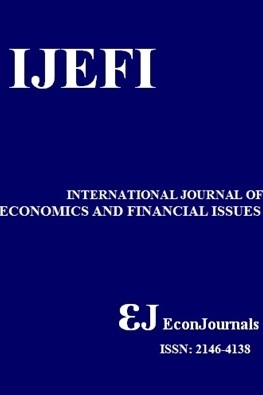The Effect of Audit Quality on Stock Crash Risk in Tehran Stock Exchange
The Effect of Audit Quality on Stock Crash Risk in Tehran Stock Exchange
Audit Quality, Stock Crash Risk, Down-to-up Volatility Whether or Not Experience Crash Month, Auditor Expertise,
- Başlangıç: 2011
- Yayıncı: İlhan ÖZTÜRK
Conflict, Defense Spending and Economic Growth in the Middle East: A Panel Data Analysis
Serkan KÜNÜ, Sertaç HOPOĞLU, Gürkan BOZMA
Aleksandr Pavlovich GORBUNOV, Natalya Nikolaevna GORBUNOVA, Ekaterina Vladimirovna EFİMOVA, Sofiya Georgievna KİLİNKAROVA
Mustabsar Awais, M. Fahad Laber, Nilofer Rasheed, Aisha Khursheed
Do Personnel Stability, Family Business and Auditor Influence Financial Restatement?
Kai-Ling Chen, Shen-Ho Chang, Teng-Shih Wang
Social Results of Domestic and Foreign Firms: Case Manufacture of Transport Equipment in Russia
Vladislav V. SPİTSİN, Aleksandr A. MİKHALCHUK, Lubov SPİTSİNA, Nataliya TYULENEVA, Darya NOVOSELTSEVA
Does Dividend Announcement Generate Market Signal? Evidence from Pakistan
Ghulam Mujtaba Chaudhary, Shujahat Haider Hashmi, Aqeel Younis
Sapto JUMONO, Noer Azam ACHSANİ, Dedi Budiman HAKİM, Muhammad FİDAUS
Single or Menu Contracting: An application of the Hersanyi Model to Mudaraba Financing
Adil El FAKİR, Mohamed TKİOUAT
National Policy of Japan for Stimulating Innovation Process in the Energy Industry
Natalia Alexandrovna Vorobeva, Mikhail Vladimirovich Kolesnikov
